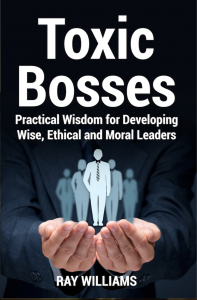By Ray Williams
May 29, 2021

If you want to know how someone is feeling, it might be better to close your eyes and use your ears: People tend to read others’ emotions more accurately when they listen and don’t look, according to research published by the American Psychological Association.
“Social and biological sciences over the years have demonstrated the profound desire of individuals to connect with others and the array of skills people possess to discern emotions or intentions. But, in the presence of both will and skill, people often inaccurately perceive others’ emotions,” said author Michael Kraus, PhD, of Yale University. “Our research suggests that relying on a combination of vocal and facial cues, or solely facial cues, may not be the best strategy for accurately recognizing the emotions or intentions of others.”
In the study, which was published in APA’s flagship journal, American Psychologist, Kraus describes a series of five experiments involving more than 1,800 participants from the United States. In each experiment, individuals were asked either to interact with another person or were presented with an interaction between two others. In some cases, participants were only able to listen and not look; in others, they were able to look but not listen; and some participants were allowed to both look and listen. In one case, participants listened to a computerized voice reading a transcript of an interaction — a condition without the usual emotional inflection of human communication.
Across all five experiments, individuals who only listened without observing were able, on average, to identify more accurately the emotions being experienced by others. The one exception was when subjects listened to the computerized voices, which resulted in the worst accuracy of all. (An audio sample of the computerized voices, which features two college-age women teasing each other, is here.)
Since much of the research on emotional recognition has focused on the role of facial cues, these findings open a new area for research, according to Kraus.
“I think when examining these findings relative to how psychologists have studied emotion, these results might be surprising. Many tests of emotional intelligence rely on accurate perceptions of faces,” he said. “What we find here is that perhaps people are paying too much attention to the face–the voice might have much of the content necessary to perceive others’ internal states accurately. The findings suggest that we should be focusing more on studying vocalizations of emotion.”
Kraus believes that there are two possible reasons why voice-only is superior to combined communication. One is that we have more practice using facial expressions to mask emotions. The other is that more information isn’t always better for accuracy. In the world of cognitive psychology, engaging in two complex tasks simultaneously (i.e., watching and listening) hurts a person’s performance on both tasks.
One implication of this research is simple, according to Kraus.
“Listening matters,” he said. “Actually considering what people are saying and the ways in which they say it can, I believe, lead to improved understanding of others at work or in your personal relationships.”
Read my new book, available on Amazon:Toxic Bosses: Practical Wisdom for Developing Wise, Moral and Ethical Leaders, where I examine in detail the impact that toxic bosses have on employee well-being.


